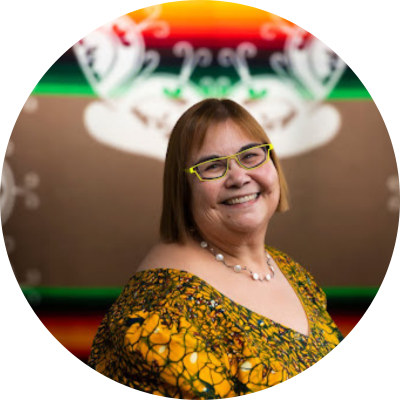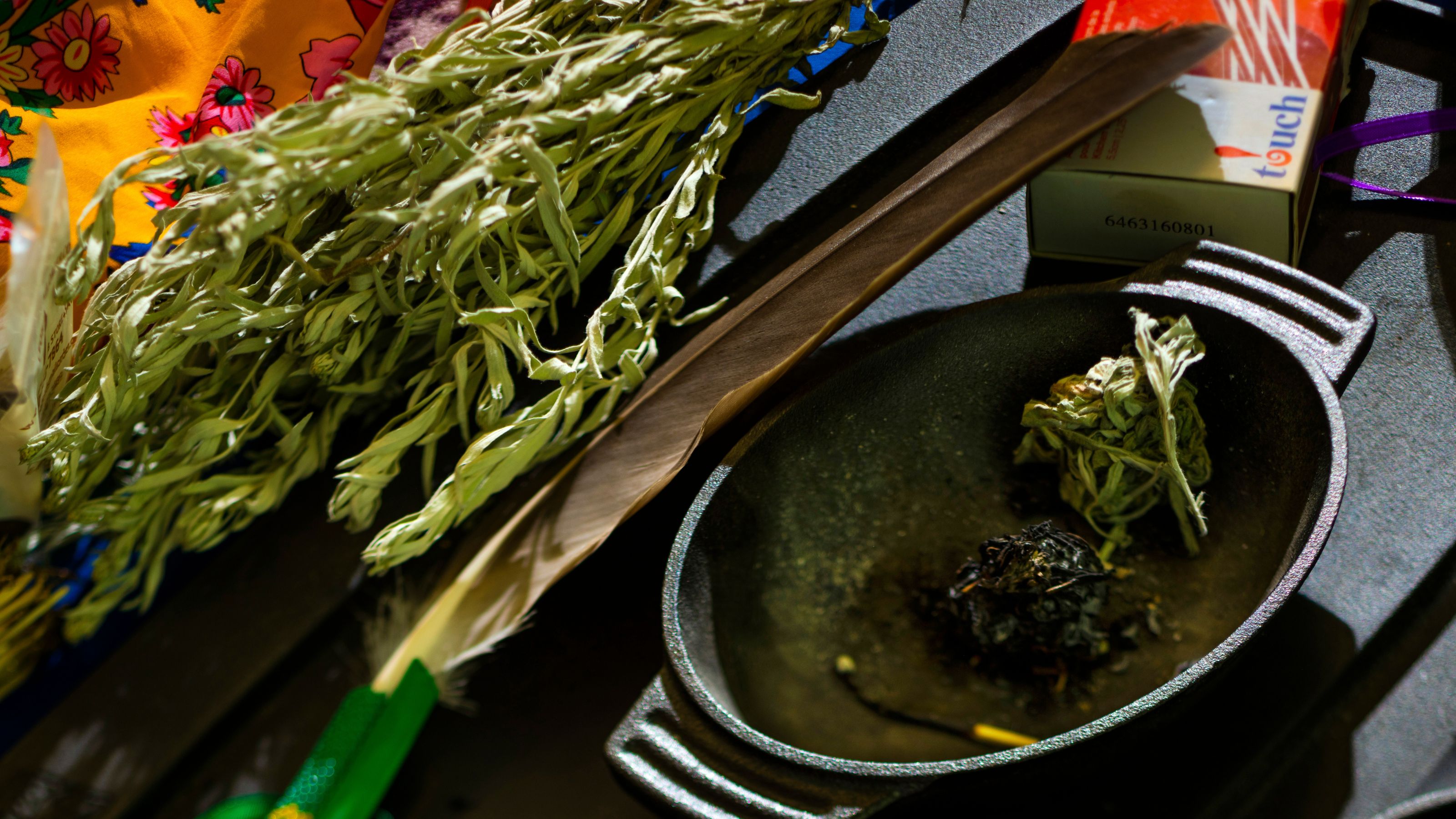As an educator, I am always excited by the opportunity to share teachings that foster a deeper understanding between and among humans. The Office of the Vice-Provost, Indigenous Programming and Research has been working with many campus partners to build out the University of Alberta’s Indigenous-focused resources. These resources contribute to the wellness, safety, and success of Indigenous students, staff and faculty and that of all community members. They provide opportunities for community growth and learning as we, individually and collectively, continue on the path towards conciliation and Indigenization within the U of A’s physical and digital spaces.
This month, I am pleased to share three newly developed resources.
The Affirming and Acknowledging Indigenous Ceremonial Practices at the University of Alberta resource provides guidelines and information on the lighting of ceremonial medicines at the University of Alberta. This includes context and background, information on safety and signage, a FAQ, and a list of frequently used ceremonial spaces. Campus Maps have also been updated with a Frequently Used Ceremony Spaces filter.
As outlined in Braiding Past, Present and Future: University of Alberta Indigenous Strategic Plan and reaffirmed within Shape: The University Strategic Plan 2023-33 and A Culture of Care: Safety Action Plan 2023-25, the entire U of A community commits to and supports the rights of First Nations, Métis, and Inuit individuals and groups to engage in cultural and spiritual practices anywhere on campus, including, but not limited to, outdoor spaces, classrooms, lecture halls, gathering spaces, and residences.
This resource was developed by the Office of the Vice-Provost, Indigenous Programming and Research in collaboration with the assistant dean, First Nations, Métis, and Inuit Students; representatives from Facilities and Operations, Environment and Support Services and Employee Labour Relations; Human Resources, Health, Safety + Environment (HRHSE); the Indigenous Advisory Council; the Students’ Union, Indigenous Students’ Union, Graduate Students’ Association and Indigenous Graduate Students’ Association; and other partners at the U of A.
You might ask, why is this important? Indigenous Peoples are working to reassert cultural and spiritual practices made illegal in Canada from 1885 to 1951 and harmed by other acts of colonialism and erasure long before and after this time period. The lighting of sacred medicines honours Indigenous Ways of Being in university spaces, aiming to support cultural revitalization and wellness. The practices also offer an opportunity for community-building and cross-cultural education. The resource affirms and acknowledges the university’s commitment to providing an inclusive and respectful environment for all.
~
The eClass Territorial Acknowledgement and Commitment to Conciliation video was initiated by the University of Alberta Online Learning and Continuing Education Office, under the leadership of Kristin Mulligan, director of Online Learning. They sought to find an innovative way to integrate the commitments of our land acknowledgement into the online format. The video is embedded on an eClass page and was developed in collaboration with the Office of the Vice-Provost, Indigenous Programming & Research with creative support from pipikwan pêhtâkwan and in consultation with the Indigenous Advisory Council.
The video, which offers the Sweetgrass Teachings from Elder Fernie Marty, Papaschase First Nation, shares the land acknowledgement and the “seven generations” commitment – a key part of the University of Alberta’s commitment to conciliation (establishing respectful nation-to-nation relationships). It is available for all instructors to add to their courses in eClass. To support the addition of this resource to eClass, a “Knowledge Base” article was created.
Again, you might ask, why is the video and commitment to conciliation important? As set forth in Shape, the U of A has committed to incorporating Indigenous identities, languages, cultures, and worldviews across the university. The video of the Sweetgrass Teachings and the commitment to conciliation offers an opportunity to share cross-cultural learning and a meaningful understanding of the key values that underpin Braiding Past, Present and Future – looking to the past, in-powering the present, and imagining the future.
~
Part of the work of Indigenization includes building awareness and understanding of how we might respectfully bridge Indigenous understandings with university processes. With leadership from Michael Walesiak, director, Research Administrative Services, Vice-President (Research and Innovation) and in consultation with the Indigenous Advisory Council and the Indigenous Research Strategies Task Force, the U of A implemented a revised honoraria payment rubric for First Nations, Métis, and Inuit Elders, Knowledge Keepers, and community members in 2022. The work was also supported by the internal communications team in External Relations. The goal of this process was to better reflect the cultural and spiritual protocols of the generosity of the recipient of the honoraria.
To support deeper understanding and the roll-out of the process, the Indigenous Honoraria Educational Video an educational video featuring James Knibb-Lamouche–U of A alumnus, former research director at the Indigenous Knowledge and Wisdom Centre, and now executive director of ⴰⵔⵔⴰⵎⴰⵜ Ărramăt–was created as a supplemental resource to contribute to different audiences to understand Indigenous gifting practices and increase cultural competency at the U of A.
These resources were created through thoughtful collaboration and meaningful engagement among diverse humans within the University of Alberta community. I invite you to view these resources and listen to the teachings often, to share these resources with your colleagues at meetings and gatherings and to remind yourself of the important role that each of us has in learning about conciliation as the University of Alberta community operationalizes key goals within Shape, A Culture of Care, Braiding Past, Present and Future and the recently launched Igniting Purpose: The Student Experience Action Plan.
Florence Glanfield
Vice-Provost, Indigenous Programming and Research

About Florence
Florence Glanfield is a member of the Métis Nation of Alberta. In her role as vice-provost (Indigenous Programming and Research), Florence led the development, consultation, and approval of the Indigenous Strategic Plan in support of the objectives articulated in For the Public Good, to build and nurture positive relationships with Indigenous communities, support the work of faculties and departments to Indigenize curricula across programs and foster a supportive environment for Indigenous faculty, students, and staff.
Florence comes to the vice-provost position from her previous role as professor and chair of the Department of Secondary Education in the Faculty of Education, where her primary areas of scholarship include mathematics teacher education, Aboriginal curriculum perspectives, and relational research methodologies. She is an affiliated faculty member with the Centre for Research for Teacher Education and Development.
Learn more about Florence.
